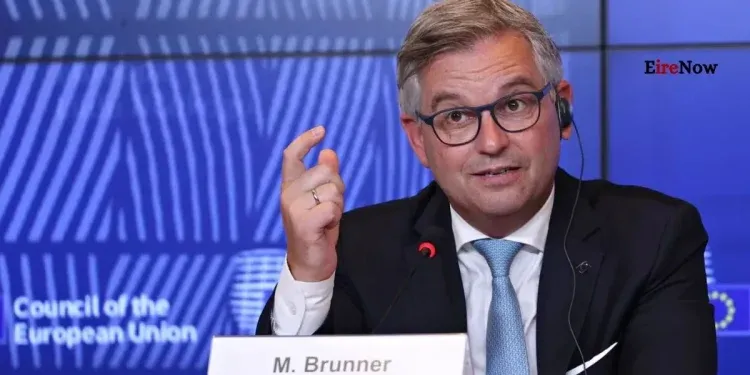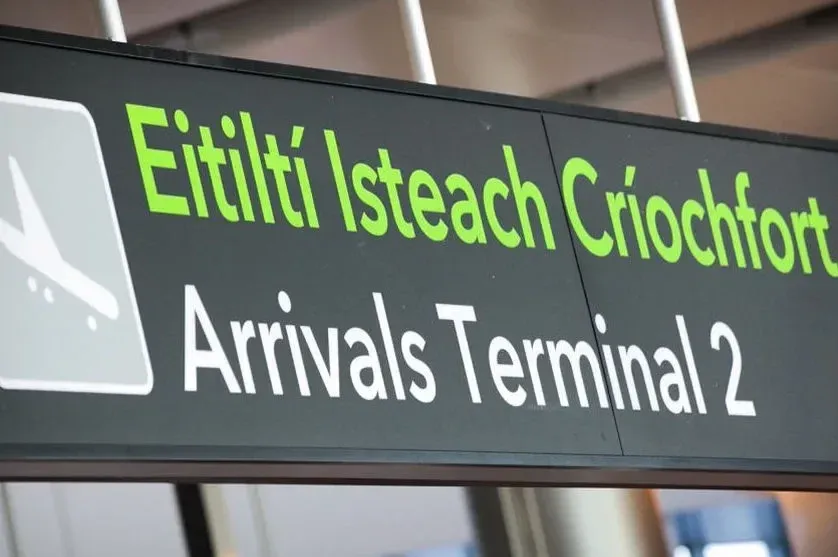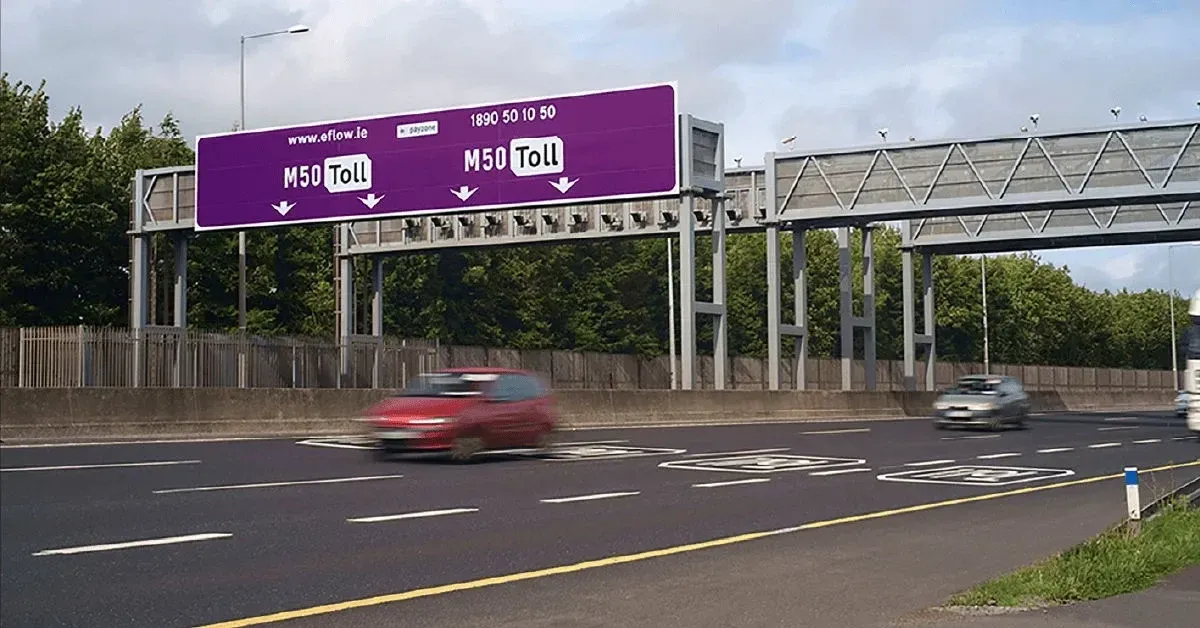DUBLIN – European Commissioner for Internal Affairs and Migration, Magnus Brunner, is in Dublin today for key discussions with Minister for Justice Jim O’Callaghan, focusing on the implementation of the EU’s landmark Migration Pact, security cooperation, and Ireland’s preparations for its upcoming Presidency of the European Union.
Commissioner Brunner’s visit, part of a tour of all 27 member states on the migration issue, underscores the significance of Ireland’s role in the bloc’s evolving policies.
Migration Pact Implementation a Key Priority
A major focus of the meeting with Minister O’Callaghan is the EU Migration Pact, set to come into effect in mid-2026. The pact aims to overhaul the screening and registration of asylum seekers, introducing faster processing and a new “Solidarity Pool” mechanism.
In a statement ahead of the visit, Commissioner Brunner praised Ireland’s efforts, saying, “Ireland is doing an excellent job in preparing for the reform of our migration and asylum policy. With it, we will be in control over who can come to Europe, who can stay, and who must leave again.”
- Solidarity Mechanism: The pact requires member states to assist frontline states like Greece or Italy during overwhelming influxes of migrants.
- Ireland’s Contribution: According to an Oireachtas note, Ireland’s annual obligation in an emergency situation would be either the relocation of 648 asylum seekers or a financial contribution of €12.96 million, or a combination of both.
- Compliance Measures: The Commissioner is scheduled to visit the newly acquired Citywest reception centre (€148.2 million), which will be a central part of the State’s compliance with the pact.
- Opt-In Status: Ireland has opted into nearly all elements of the Migration Pact, being exempt only from the EU’s Entry/Exit System, a Schengen-related IT system.
The visit also follows a European Commission report on November 11th, which acknowledged the “pressures on Ireland’s reception system,” including increased arrivals via Northern Ireland, and recommended priority support from EU agencies and financial instruments.
Justice ministers, including Minister O’Callaghan, are set to meet in Brussels on December 8th to further negotiate the specifics of the solidarity allocations.
Security Cooperation and Organised Crime
Beyond migration, Commissioner Brunner—who recently attended a G7 ministerial meeting focusing on hybrid threats and organised crime—is also set to discuss enhanced security cooperation.
He will meet with senior Garda officials, the Head of the Criminal Assets Bureau, and the Organised Crime unit to discuss tracing and seizing criminal proceeds. “Confiscating and seizing criminal assets is a key pillar in the fight against organised crime,” the Commissioner noted, highlighting the timeliness of the engagement.
The visit precedes the unveiling of the EU Drugs Strategy by Commissioner Brunner next week, aligning closely with Ireland’s priorities in tackling drug trafficking and organised crime profits.







